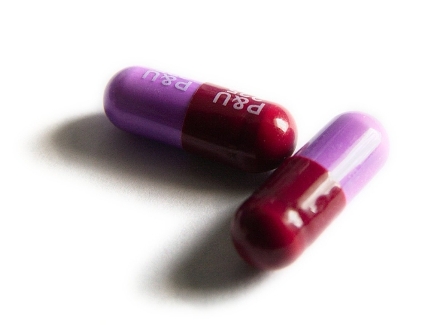Metabolic Syndrome Linked To Antibiotic Usage
In order to destroy harmful bacteria responsible for a particular illness, antibiotics are given to hasten recovery. However the indiscriminate use of antibiotics during infancy does not only destroy harmful bacteria but also hampers beneficial bacteria in the gut, thus significantly modifying the micro biotic community of the gut.
The bacteria present in the intestine plays a massive role in the body and have a variety of functions, including playing a role in obesity. The microbiome in the intestine is majorly dependent on the kind of diet an individual consumes, but serious long term consequences can take place with exposure towards antibiotics during infancy. According to research published in The Guardian, it was seen that babies who were administered penicillin stood at a greater risk of becoming obese in later life due to the dramatic modifications in their gut flora.
If a child is extremely ill, the question of administering antibiotics does not arise; however if it is a marginal illness, the doctor needs to think twice before prescribing antibiotics and perhaps give it a day or two for the child to recover from the illness, instead of prescribing long term antibiotics.
Another research paper published in the journal Cell, concludes that there is a window period when alterations to the microbiome in the gut can have a life-threatening and semi-permanent impact on the metabolism of the body. In the study it was seen that when mice were administered antibiotics for the first three weeks of their life, they grew up to be approximately 20% heavier and had more than 50% body fat than the other controls. It is important to understand the role of microbiome in obesity as one of the most significant reasons for doing so is the increased risk of malignant tumors at the top of it.
In another recent experiment, information was examined from more than 4 million people over the age of 15. With every 5.5 kg increase in the weight of the body, there was an increased risk for over eight types of malignant tumors including thyroid cancer, cancer of the cervix, cancers in the kidney, gallbladder, uterus and leukaemia. In the featured mouse experiment, experimenters discovered for particular types of intestine bacteria that were of critical significance to metabolism, including lactobacillus. With the use of antibiotics, these four categories of bacteria were eliminated in the intestine, as seen in the mice study that caused metabolic changes to take place, triggering the effect of obesity.
The main issue with antibiotics is that when a certain type of bacteria is destroyed in the gut, it allows irrepressible ones to take over and thrive, and in most cases it is seen that harmful bacteria are stronger and tend to thrive better than good bacteria.
The best way to optimise intestine bacteria is through one’s diet. It is extremely important to drastically cut down the consumption of empty carbohydrates, especially processed foods and all forms of sugar. Of special mention are genetically engineered ingredients that must be completely eliminated from one’s diet. Other harmful foods that can impact good bacteria include chlorine water and pasteurised foods. Processed foods containing gluten are specifically known to harm microflora and overall good health. Water containing chlorine not only destroys harmful bacteria but can also kill beneficial bacteria in the intestine.
A diet that can help in promoting good bacteria in the gut is one that contains unsweetened foods, unprocessed and whole foods, fresh produce, traditionally cultured and fermented foods. Some instances of cultured and fermented foods include yoghurt, kimchi, fermented vegetables, tempeh, miso, olives and various products made from raw and unpasteurised organic dairy. These foods are critical in healing and sealing healthy bacteria in the gut.
To promote good bacteria, begin by consuming 1/4 to half a cup of fermented vegetables with every meal and include various kinds of unsweetened foods or fermented dairy products throughout the day. You can begin with just one or 2 teaspoons every day and increase the amount as tolerated.
Speak to your medical practitioner about prescribing a high intensity probiotic supplementation, in case your body is severely compromised, but at the end of the day, it is important to understand that there is no substitute for real food. As your body begins to accept a higher level of fermented foods in your diet, you could enhance and supplement your diet with various natural probiotic foods to restore the flora in the gut.
